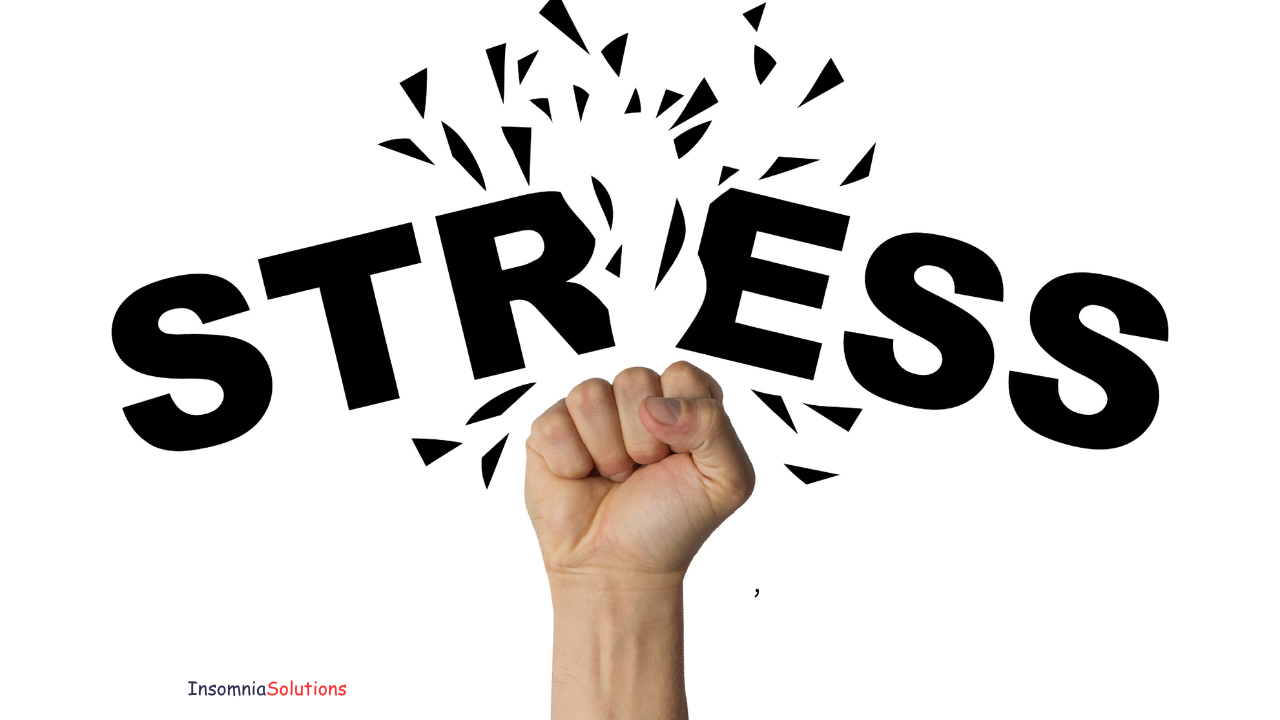Stress Management for Better Sleep: How to Calm Your Mind at Night
Struggling with nighttime stress? Learn stress management techniques to quiet your mind, improve sleep quality, and wake up refreshed.
Introduction
Do racing thoughts keep you awake at night? Stress and poor sleep often go hand in hand—creating a frustrating cycle. The more stressed you are, the harder it is to sleep, and the less sleep you get, the more stressed you feel. Fortunately, effective stress management can break this cycle and help you achieve deeper, more restorative sleep.
In this article, we’ll explore the connection between stress and sleep, along with proven relaxation techniques to quiet your mind at bedtime.

How Stress Affects Your Sleep
Stress triggers your body’s fight-or-flight response, releasing cortisol and adrenaline—hormones that keep you alert. While this reaction is helpful in emergencies, chronic stress makes it difficult to:
✔ Fall asleep – Your mind stays active, replaying worries.
✔ Stay asleep – Stress can cause frequent nighttime awakenings.
✔ Reach deep sleep – Even if you sleep, stress reduces restorative REM sleep.
Common signs of stress-related sleep problems include:
- Tossing and turning for more than 30 minutes
- Waking up with a racing heart
- Frequent nightmares or restless dreams

5 Stress Management Techniques for Better Sleep
1. The 4-7-8 Breathing Method
Developed by Dr. Andrew Weil, this technique activates your parasympathetic nervous system (the “rest and digest” mode).
How to do it:
- Inhale deeply through your nose for 4 seconds.
- Hold your breath for 7 seconds.
- Exhale slowly through your mouth for 8 seconds.
- Repeat 4-5 times before bed.
Why it works: Slows your heart rate and signals your brain that it’s safe to relax.
Read More: Insomnia Solutions: Effective Ways to Overcome Sleepless Nights
2. Progressive Muscle Relaxation (PMR) Stress management
PMR reduces physical tension, which often accompanies stress.
How to do it:
- Lie down and take a few deep breaths.
- Starting from your toes, tighten each muscle group for 5 seconds.
- Release and notice the difference between tension and relaxation.
- Move upward—calves, thighs, abdomen, arms, shoulders, and face.
Best for: People who carry stress in their body (e.g., clenched jaws or stiff shoulders).
3. Journaling Before Bed (Stress management)
Writing down worries “clears” them from your mind so they don’t resurface at night.
Try this:
- Keep a notebook by your bed.
- Spend 5-10 minutes listing:
✔ Tomorrow’s tasks (so you don’t obsess over forgetting them)
✔ Current stressors (getting them out of your head helps)
✔ Positive moments from the day (shifts focus away from anxiety)
Bonus: Studies show gratitude journaling improves sleep quality by 25%.
4. Guided Sleep Meditations
Listening to a calming voice redirects your focus away from stressful thoughts.
Where to find them:
- YouTube (search “sleep meditation for stress”)
- Apps like Insight Timer or Calm (free options available)
Tip: Choose meditations with binaural beats (theta waves promote deep sleep).

5. The “5 Senses” Grounding Technique (Stress management)
If anxiety feels overwhelming, this method brings you back to the present.
How it works:
Name…
- 5 things you can see (e.g., your pillow, the moonlight)
- 4 things you can touch (e.g., blanket texture, your breath’s warmth)
- 3 things you can hear (e.g., a fan, distant traffic)
- 2 things you can smell (e.g., laundry detergent, lavender spray)
- 1 thing you can taste (e.g., mint toothpaste)
When Stress Keeps Winning: Next Steps
If you’ve tried these techniques and still struggle, consider:
- Cognitive Behavioral Therapy for Insomnia (CBT-I): The gold standard for treating stress-related sleep issues.
- Sleep tracking: Apps like Sleep Cycle can reveal patterns between stress and poor sleep.

Final Thoughts
Stress doesn’t have to sabotage your sleep. By practicing these stress management techniques consistently, you can train your mind and body to relax at bedtime. Start with one method tonight—small changes lead to big improvements over time.
Ready to take the next step? Discover how personalized strategies can help you sleep deeply, even under pressure. Stress management



